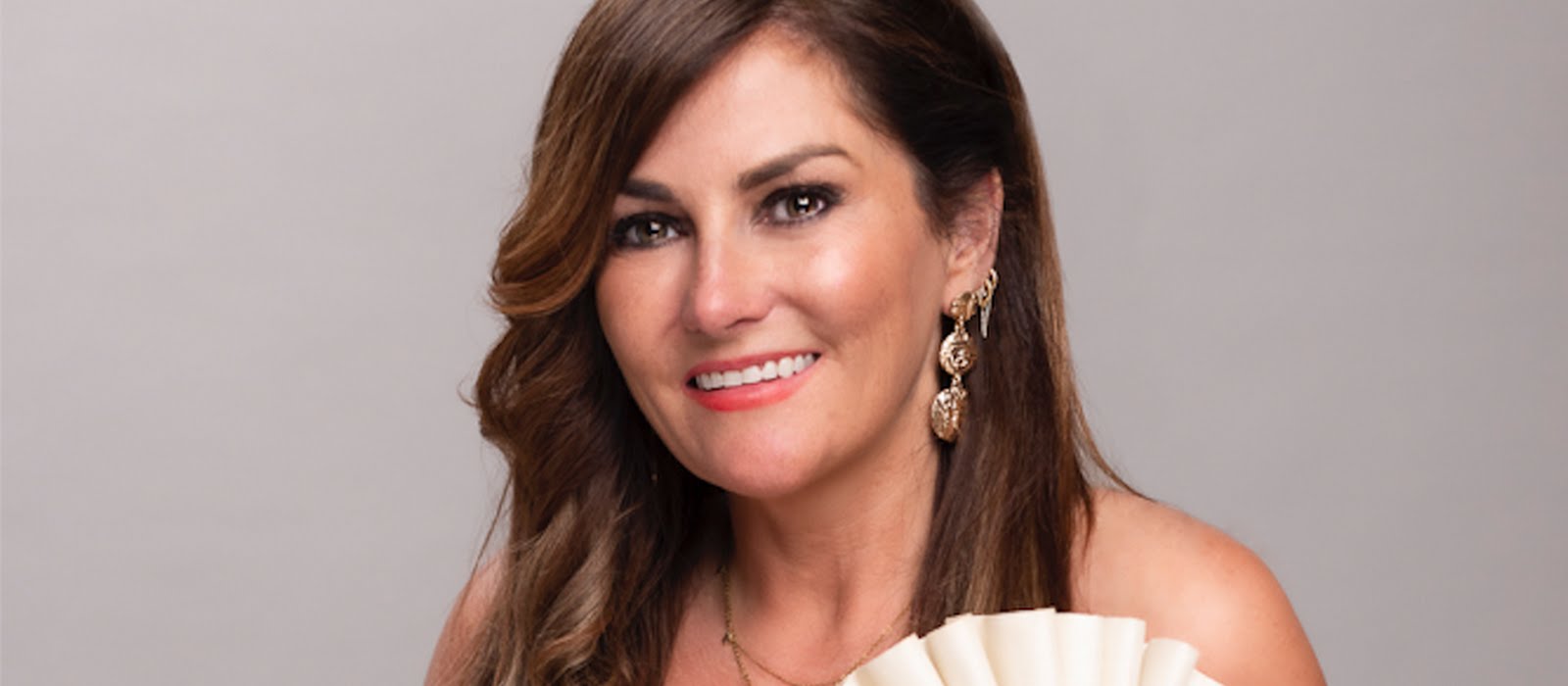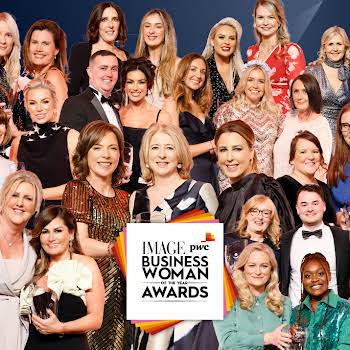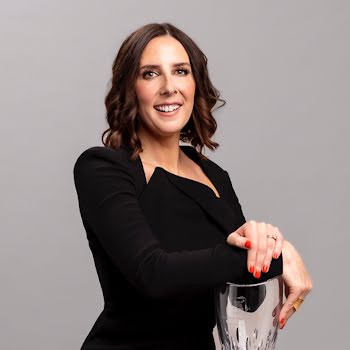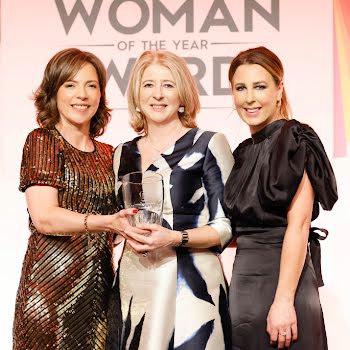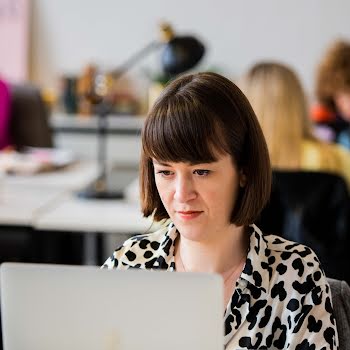‘A business run for people by people’: How Tigers Childcare grew from 12 children to a €12m turnover
In a sector often overlooked when it comes to business acumen and leadership, Karen Clince has built Tigers Childcare from a north Dublin after-school club to an international group. In this interview, written in collaboration with The Currency, she talks to Leonie Corcoran about the reality of international expansion and the optimism needed to come through the pandemic.
What started as an after-school club in north Dublin with 12 children has grown into an international childcare group that is on track to turn over €12 million by the end of the year. Founded by Karen Clince in 2003, Tigers Childcare is one of the largest childcare providers in the State and is blazing a trail both in terms of its growth and in its commitment to set a new standard of childcare for early-years and school-age children.
Clince’s vision and passion for the sector is evident when we speak on the night she is recognised as CEO of Year at the IMAGE PwC Businesswoman of the Year Awards in April. She is quick to thank her colleagues, a team of 380 across Ireland and the UK, and to highlight how the sector is often overlooked in the business world. “I am so incredibly honoured to be named this year’s CEO of the Year among such a strong group of Irish women leaders. The early years sector is often forgotten about and it is seldom that people within the sector win an accolade such as this,” she tells me.
When we speak again a few weeks later, she reiterates her point. “I know everyone says they weren’t expecting [to win such an award], but I genuinely was not expecting it. In my industry, you never expect to get these kinds of business awards, because even though your business is incredibly strategic to the economy, it’s such an evolving industry that it’s often not seen as ‘business’ as such,” she says.
Importance of early years
“I think for a long time, people in this sector were seen kind of like babysitters. I suppose part of that came from the fact that going back 10 years, you could still get a job in the sector without being qualified. So, many people really were minding children. But that’s changed because of two key things: people realise they cannot go to work without good quality childcare and the traditional family support of grandparents, aunts or uncles is not really there anymore for most people. Secondly, people have realised the importance of the early years in children’s lives.”
The programmes at Tigers Childcare are grounded in the latest research and thinking around these early years and the group aims to provide “holistic care that supports children’s social, emotional and educational development”. Clince believes good quality childcare has the power to change lives and her vision is to create a community of individuals with bright futures, empowered to contribute to society in meaningful ways.
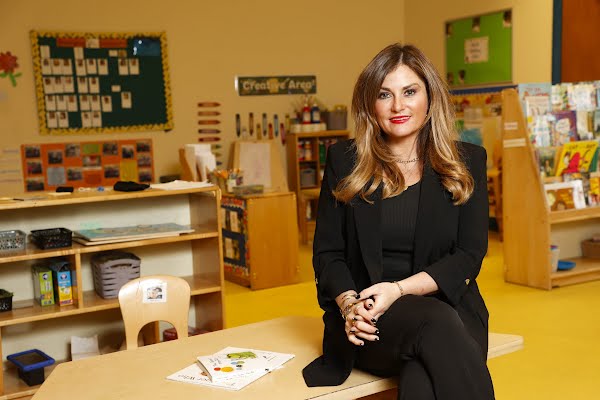 ConorMcCabe Photography
ConorMcCabe PhotographyClince’s career started in the marketing world – she completed a marketing degree at Dublin Institute of Technology and went on to work at software company. It wasn’t a role that was especially professionally fulfilling for her so when she was made redundant, aged 20 and during the dotcom crash, she decided to retrain. She was also pregnant with her first child and as a single parent, she recognised the need for a different work set-up with more family-friendly hours. She re-trained as a special needs assistant and started working with St Vincent’s Primary School in Glasnevin.
She opened her first centre at that school in Glasnevin in 2003, financed with a €500 personal loan.”
Though “the pay wasn’t great and I wasn’t thinking of building the business then, I knew from the first day there that I wanted to work with children. The joy of seeing their progression… having children coming to you when they had something wrong and feeling like you would listen to them. I loved it.” As Clince shares this, she lights up speaking about the individual children who would greet her in the playground with big waves and after almost 20 years in business, it’s still to the classroom she returns to if she’s feeling “frustrated or bogged down”.
Ethos and culture
It was at the school gates at pick-up time that Clince saw the crunch parents were facing and she identified a gap for after-school childcare, something she had experienced in Australia when she was living there as a child. She opened her first centre at that school in Glasnevin in 2003, financed with a €500 personal loan. Soon she received feedback from families that the children attending were doing better in school, making new friends and gaining more confidence. And so she was asked to open a second. In the early years as the business grew, it was run, in Clince’s words, almost as a “family business” with her mum, Mary, as chief financial officer, her sister Susan as managing director (for all matters administrative and organisational) and her her “trusty sidekick” Therese Noonan as operations manager.
Today, Tigers Childcare operate 19 centres and care for over 2,100 children.”
Over the next 10 years, Tigers acquired new centres across Dublin, Cork and Kildare, including three from multi-national childcare provider Bright Horizons, which had been operating at just 20-50 per cent of their capacity. Tigers brought this up to over 95 per cent in 18 months, giving Clince “valuable experience at turning businesses around”. She says they aim to only buy centres with the “same ethos and culture as us” to improve these outcomes and today they operate 19 centres and care for over 2,100 children.
There were tough years on the way, such as 2009 when Tigers had just opened two new centres as Ireland faced recession and they didn’t have enough money to pay the wage bill that Christmas, until support came through from AIB, family and friends. “I know my strengths and I know where they are not. So, when we got to a stage of significant potential growth in the years after that, we needed to bring in additional skills and we did.” The group is now run by a board and the executive team meet every Tuesday to discuss key decisions.
Debt, finance and optimism
They secured €5 million debt finance from DunPort Capital in 2020, which fuelled expansion across Ireland and into the UK, and since a €10.5 million investment in November 2021 by private equity group BGF Ireland, the group has doubled in size. It’s an expansion that is set to continue with the group on track to turn over more than €12 million by the end of the year and to complete the acquisition of six centres in the same timeframe. “The board has an appetite for six centres this year and we’re nearly there at this stage, but I’ve a personal appetite for eight and I think we can do that,” she says. I ask if she is optimistic by nature?
“I suppose I’m always very optimistic, yes it’s my nature and I’m lucky I sit with a director who’s the same as me – we’re both sunny side up. So we believe ‘yes, it’s not going to be a problem for us’. But let’s see how the timings run on the acquisitions…generally things do run late.”
Clince’s optimism can also be felt when I ask her about political will to support Ireland’s childcare sector, a sector at crisis level in many ways. “There has been such significant policy reform over the past 10-12 years and I see steps in the right direction . . . we just need somebody to grab it by the horns and make it a priority, because I just don’t think it has been a priority. Governments are always firefighting, always trying to win the next election, but what needs to be done is to take a more strategic long-term view and I’d love to see somebody really jump on the back of it.” She credits Katherine Zappone as being the first person to really spearhead policy for the early years, identifying how important it is and enabling it to evolve. “There’s still lots of change needed, but it’s definitely on the right road for early years.”
A ‘watershed moment’
Clince doesn’t shy away from advocating for her sector and she successfully lobbied for improved pay, resulting in a new pay agreement funded by the State last September. This saw wages increase for an estimated 73 per cent of those working in the sector and she described it as a “watershed moment”. Despite her natural optimism, she is frank about the pressures. “I have worked in the sector for over 21 years. While I have been involved in numerous changes I have never experienced anything like the financial pressures and the staffing crisis we have faced in the last 12 months. The cost of running a childcare facility is at an all-time high, not only due to massive inflation but also ever-escalating wages, which account for 70 per cent of our costs.” She says a funding increase of €28 million from September, announced in recent weeks, is simply not enough.
“Wages are rising due to increased competition to attract and retain qualified staff, yet under the scheme we are precluded from increasing fees from pre-Covid levels to meet these costs. If the government does not act fast to take a proper look at the situation on the ground and commit to fully understanding what is needed to help the sector, hundreds of settings will close,” she says.
I am a multi-site provider and we are financially backed, but we are the minority – it’s a national crisis.”
Clince is adamant about hiring qualified staff – “making sure colleagues are paid correctly is incredibly important. I am a multi-site provider and we are financially backed, but we are the minority – it’s a national crisis.” She shared that Tigers had a 7 per cent increase in revenue last year, is facing a 90 per cent increase in heating and electricity bills, 85 per cent increase in recruitment and “all the other increases every business is facing”. In addition, Clince is introducing a wage increase of 8 per cent next month, which had been planned for September, in order to retain staff. The group has an above industry average retention but it’s still a challenge. She believes in the need and the potential to make childcare a more attractive career and Tigers offer reward incentives, back-to-college incentives, health insurance and a sliding pay scale for all staff to achieve this.
Expansion challenges
Staffing in the UK has been one of the challenges to the group’s expansion, which began when they won a contract to turn an empty space into a new childcare facility in London’s Elephant & Castle, as part of a wider urban regeneration project in 2020. “It’s been quite challenging, I’m not going to lie. It’s quite different because in the context there, only 50% of colleagues need to be qualified, which is hard because people may not understand the theory [of our programmes]. Alongside that, staff can literally walk out the door and get a job down the road without a reference from you. That doesn’t happen in Ireland where your last employment does follow you to your next employment.”
I think a CEO needs the knowledge base of what is happening in her business and that informs my leadership style.”
“We’re very lucky now: we’ve a fantastic manager, fantastic assistant manager and a really low colleague turnover, but it was two-and-a-half hard years to get there.” She currently spends a week in Ireland and a week in the UK. In the latter, she is “fully on-site” which prompts me to ask her about the common mantra that a leader can’t lead their business while being in their business, she says she doesn’t think she “would ever want to be a CEO that’s not in the business”.
“When I am in the classrooms, I spot the things we might need to change or the things that we are doing really well. That’s the kind of thing that makes me want to keep continuing to grow.” However, she qualifies it by saying she has an incredible operations manager which means she, as CEO, is no longer operationally “in the business”. “I think a CEO needs the knowledge base of what is happening in her business and that informs my leadership style.”
She describes that leadership style as collaborative and emphasises the importance of communication. “It’s all about communication. We are a business about people, run by people. The best way you can deal with people is to communicate. And it’s all about people’s interpretations and how people feel. Sometimes when things go wrong, it might not have been what you meant when you said something, but it is how that thing made someone feel. I lead by asking how can we get more information? How can we involve more people? It informs our strategy days.”
Resilience as a trait
In the days of Covid, some of those strategy days must have been tough, with the sector hammered by closures and uncertainty. At the recently-opened London centre, 75 per cent of parents relocated out of London at the time and in Ireland her centre’s “haemorrhaged money” during the closure months. She remained confident and optimistic, of course, about the future and she also credits one of her mum’s phrases with her resilience. “When something would set you back she would say, ‘well what are you going to do? Are you going to let it stop you or are you going to put it in your engine and let you drive you forward?’ You can see what I choose,” she laughs.
Resilience is often a trait women leaders cite when they speak about success and I ask her if, as a female leader, she thinks there are any unique challenges when compared to male counterparts? “I think it’s a bit different in the industry I am in because it’s very female oriented. But when we look at larger structures, yes I think it is a much harder playing field. Even when it comes to raising finances, you go back into a world that is mostly male dominated who don’t always understand the challenges of being a woman CEO and what supports they need. So, the challenges are there.”
And here comes the optimism again: “It’s important not to forget our power. Being a woman in a room full of men gives us a power to be able to say ‘I think you are being a bit male chauvinistic there’ and making them take a step back. No man wants to hear that and I think calling out that behaviour can give you a certain amount of power. They’ll certainly step back and think about what they are doing.”
Strong women leaders
“I also think with the challenges come opportunity – the opportunity to surround yourself with other really strong women leaders. I’ve been really lucky to have good supporters around me, women who would speak about me if I wasn’t around; who would put me in contact with someone; who would give my advice for free; who would invest if I needed assistance to tide me over. We need to remember not to be afraid to ask for help.”
Don’t be afraid to throw yourself forward.”
One such supporter is her friend and mentor Louise Phelan, former vice president of PayPal and a high-level strategic advisor with leading global companies, who she credits with one of her biggest business learnings. “Louise is a great supporter and a particularly great supporter of women. But I think the biggest thing she taught me is the ability to be a businesswoman while having a really strong moral compass.”
She also advocates going to networking events and putting yourself out there. “It’s always uncomfortable at the start, particularly when you are in a small company and you are going to these things by yourself. But you always come away having learned something; always thinking it was well worth it. So don’t be afraid to throw yourself forward.”
When I ask where she’ll be throwing her tiger energy in the coming year, she believes the opportunity is currently in Ireland. “The scene has changed here since we decided to expand into the UK, so our focus will be here; it’s a time of opportunity in Ireland.”
That and a month in Quinta de Lago in Portugal, her usual summer break, with her daughter Ella Bleu (21) and son Luca (14) where she can work in the mornings and have family time in the afternoon sun. It certainly sounds sunny-side up.
This is the second in a series of articles written in collaboration with The Currency. Chief Executive of The Currency, Tom Lyons, was a judge of the annual IMAGE PwC Businesswoman of the Year awards.
Become an annual member of The Currency today and get access to more than 4,400 unique interviews, investigations, columns, and features, as well as 320 original podcasts – plus all new content for the next 12 months.
Online only and subscription only, The Currency go deeper on Irish business, economics, policy and society, giving members an edge in business. Members also get access to regular events with business leaders, policymakers and opinion shapers; often in collaboration with blue chip partners.
Join The Currency today with the code IMAGE10 and receive 10% off annual membership.

The IMAGE Business Club is building a supportive and empowering community of women in business in Ireland by delivering the Network, the Expertise and the Knowledge they need to thrive. We are delighted to partner with the Currency in this series of interviews and in offering the IMAGE community an exclusive 10% discount on an annual subscription.











